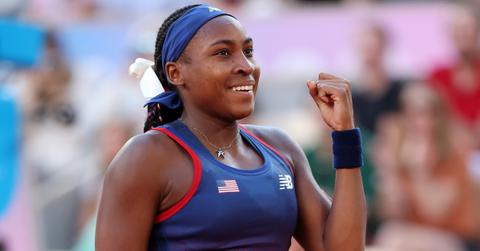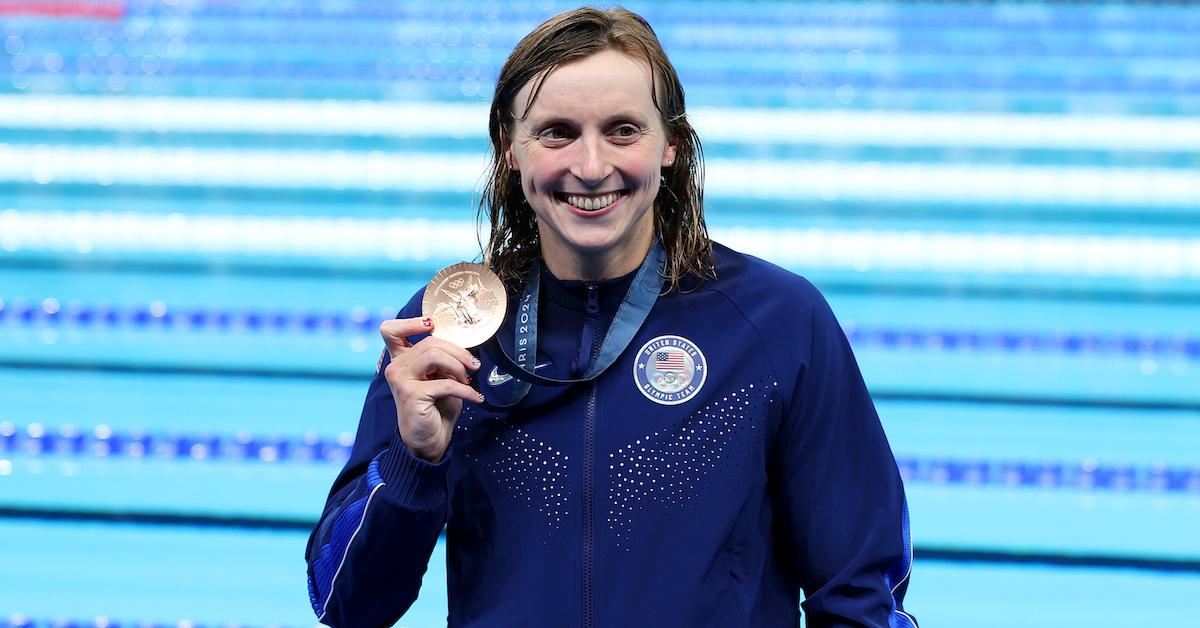Why Are Professional Athletes Allowed To Compete in the Olympics? It Wasn't Always That Way
“The pros are there for a reason,” sports journalist Ron Rapoport said. “People will tune in to watch athletes they know."
Published July 31 2024, 5:00 a.m. ET

Once upon a time, only amateur athletes were allowed to compete in the Olympics. This rule stood for many, many years, with athletes who accepted money for their sport being strictly forbidden from participating.
But in the 2024 Olympic Summer Games, of the 10,500 athletes who are competing, many are professionals, including Katie Ledecky.
So why are professional athletes now allowed to compete in the Olympics? Read on for the answer.

So, why are professional athletes allowed to compete in the Olympics?
International Olympic Committee head Avery Brundage once said, “We can only rely on the support of those who believe in the principles of fair play and sportsmanship embodied in the amateur code in our efforts to prevent the Games from being used by individuals, organizations, or nations for ulterior motives.”
In fact, Olympian Jim Thorpe once had his Olympic medals stripped for accepting money to play semi-professional baseball in college. He had his medals posthumously restored, incidentally.
Nowadays, while the athletes don't get paid directly by the IOC to participate in the games, as we know, many of them are wealthier than fans' wildest dreams. It's a far cry from 1896 when the modern-day Olympics began.
Take tennis pro Coco Gauff as an example. She is worth a staggering $3.5 million at the age of 20. She may earn as much as $1 million from endorsements alone.
And her mass appeal means that more folks will tune in to see Coco rally.
“The pros are there for a reason,” sports journalist Ron Rapoport said. “People will tune in to watch athletes they know. The pro athletes are pre-sold to the public, which means increased viewership.”
Since 1992, with each sport eventually agreeing to allow professionals, non-amateurs play soccer, basketball, tennis, beach volleyball, and more, all with adoring fans looking on, and not caring whether they are making money or not.
Interesting tidbit: Professional wrestlers are not allowed to compete in the Olympics.
Some of the most famous athletes of all time competed in the Olympics.
In 2000, Serena and Venus Williams competed in the Sydney Olympics, but even these incredible professional athletes are not the biggest names in sports to go for gold in front of the world.
In 1992, Michael Jordan and Magic Johnson were on hand to compete in Barcelona among amateurs. And don't forget about Naomi Osaka and Megan Rapinoe.
Not all Olympic athletes achieve success like the pros.
While you have Simone Biles and Katie Ledecky to keep fans coming back to their televisions throughout the Olympics, many athletes' names and faces will never be as recognizable or money making.
“As impressive as someone like Simone Biles is or Michael Phelps has been, their stories get told and their achievements get reported on and analyzed," Lee Igel, clinical professor at the NYU Tisch Institute for Global Sport, told Vox. "But there are incredible stories of people who really have to go work in regular jobs, depending on where they are in the world, to earn money just so they can live, and then they’re doing their training on top of it.”